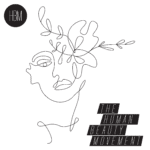
From travel journals to dream and prayer journals, keeping specific texts for different aspects of our life is something many people do to keep aspirations and moments concrete for manifestation and remembrance. Without diarists like Anne Frank and Samuel Pepys, we wouldn’t know much about the personal side of our history. Although people nowadays keep blogs or vlogs to record their lives on social media, very few of us jot in a journal and write down our experiences. Personal journals, which many believe to be a thing of the past, have a multitude of benefits for your mental health and creativity. In this blog, we will explore the reasons why keeping a journal can greatly impact your life and how you can begin journaling.
Journaling Stretches Your IQ
While it’s a hot topic, there are strong cases that support the idea that journaling possesses the ability to change your IQ. A report by the University of Victoria, for example, noted that “Writing as part of language learning has a positive correlation with intelligence.”1
Journaling is an exploration of language, so you’ll likely have the natural urge to search for new words and increase your vocabulary. The report from the University of Victoria goes on to say that one of the best single measures of overall IQ as measured by intelligence tests is vocabulary.2
A few tips to help stretch your IQ while journaling are:
- Try exploring and writing about a new topic.
- Challenge yourself to look up a new vocabulary word daily and use it in your writing.
- Read a book or magazine you’ve never read and write about what you learned.
You can find out more about writing to boost your intelligence here.
Journaling Reduces Stress
It’s been proven that an overabundance of stress can be damaging to your physical, mental, and emotional health.3 Journaling can be an incredible stress management tool by lessening the impact of the physical stressors you deal with daily.
A study administered by Cambridge found that expressive writing, such as journaling, was especially therapeutic and the participants who wrote about traumatic, stressful, or emotional events were significantly less likely to get sick and less seriously affected by trauma.4 Additionally, James W. Pennebaker, a lead researcher on expressive writing at the University of Texas and the author of Writing to Heal, has found that when we translate a stressful experience or secret into language by writing it down, we essentially make the experience graspable.5
A few journal prompts to reduce stress are:
- Right now, I feel challenged by ______. However, I feel supported by ______.
- What can I do at this moment to bring more peace into my being?
- What are some accomplishments and victories of today?
- If you could choose any place or scenario (real or imaginary) to place yourself in right now for your comfort and relaxation, where would it be? Describe it in as much detail as possible.
- What fears am I holding onto that are no longer serving me? How can I release these?
You can find more prompts to bring peace into your being here.
Journaling Improves Communication Skills
Putting your thoughts to paper forces you to articulate your ideas and, in turn, find words that express those ideas accurately and concisely. Additionally, since journaling is more free-flowing than writing an essay or job report, it’ll allow you to better express your emotions, no matter what the emotion may be. Since you’re writing in a judgement-free zone– with less formal structure– you’ll most likely be more apt to try new ways of expression.
According to a Stanford report, writing has critical connections to speaking.6 Journaling is a form of written communication, albeit to oneself. However, the subvocalization of tracing your written thoughts naturally translates into actual vocalization.
A few journal prompts to improve your communication skills are:
- List three people who you think have excellent communication skills. What about them do you admire?
- How do you communicate?
- On a scale of 1-10, how would you rate your communication skills? What are your strengths? What are some areas that might need a little improvement?
- How does your self-confidence impact your communication?
- How can you improve your active listening skills?
You can find more tips and prompts to help you enhance your communication skills here.
Journaling Promotes Healing
Science has proven that expressive writing is a route to healing; emotionally, physically, and psychologically. James W. Pennebaker has seen improved immune function and a reduction of yearly doctor visits due to writing. Additionally, writing about traumas can be a potent, and low cost, method of relieving pain and symptoms of chronic illnesses. 7
In a study from 2013, researchers in New Zealand found that 76% of adults who spent 20 minutes writing about their thoughts and feelings for three consecutive days two weeks before a medically necessary biopsy were fully healed 11 days later. Plus, expressive writing for 15 to 20 minutes a day three to five times throughout a four-month period was enough to lower blood pressure and have better liver functionality.8
A few journal prompts to promote the healing of your mind, body, and soul are:
- What can I do to make a positive difference in my life?
- Have a conversation with your body to understand any illnesses or pain you are currently experiencing.
- What do you need to let go of that you have no control over?
- Is there an experience inside your head that won’t seem to go away? What is it? Why does it haunt you?
- If you are struggling, write a letter to a loved one.
You can find more tips and prompts for holistic healing here.
Journaling Boosts Self Confidence
Journaling is a powerful tool for combating low self-worth. If you struggle with negative beliefs about yourself, reading about positive experiences that you previously journaled allows your brain to relive them and reaffirms your abilities when self-doubt appears. These reflections can become a catalog of personal achievements that you continue to go back to. Studies have shown that by reading happy entries, your body will naturally release endorphins and dopamine, which can boost your self-esteem and mood.9
It’s human nature to focus on our weaknesses while downplaying our strengths. It’s hard to be objective, which is why a journal is helpful. When journaling, try to remember that the small things matter. List your good qualities and try to use positive adjectives. Show yourself love and write about yourself in the same way you might describe a best friend or loved one.
A few journal prompts to boost your self confidence are:
- What is the best compliment you’ve been given?
- Name 5 things you did right today, no matter how small or seemingly insignificant.
- Write about a time you were recognized for your accomplishments at work or school.
- CONFIDENCE: Write what this word means to you. How can you improve your confidence?
- List 5 things you’re most grateful for in your life today.
You can find more prompts to promote self-love here.
Journaling Sparks Creativity
The act of writing itself stimulates the imagination. When you formulate or express ideas on paper it automatically releases your proverbial creative juices. Writing regularly helps you learn to process and communicate complex information while at the same time allowing you to come up with and brainstorm new ideas.
You can journal about anything important to you without being judged or critiqued. It’s a stream-of-consciousness exercise that in itself is a form of creativity. Because you’re exploring your thoughts, feelings, and emotions in an unfiltered and uncensored manner, you can sometimes find some of the answers to questions we ask ourselves as human beings, and then become inspired to explore those revelations further.
A few journal prompts to spark your creativity are:
- If you could invent something to make your life easier, how would it work and what would it do?
- The next time you’re out, pay attention to the nametags of people working in stores or restaurants. Write an imagined life for one or more of them
- Write about a treasured memory and what makes it so special
- What does love look like? What does it feel like?
- What question would you most like to know the answer to?
You can find more prompts to help stimulate your creativity here.
How to Start Your Journaling
Starting a journal can seem intimidating at first. Like any other habit, it takes a while before it becomes a repetitive part of your lifestyle.
Here are some journaling tips to help you start and keep a journal.
-
- Find the journaling techniques that work for you. Many people prefer physically writing their entries; however, if you feel more comfortable with a keyboard, you can type up your journal on your computer or phone. There is no wrong way to journal.
- Let go of judgments (write for your eyes only). When you’re writing, it’s important to practice self-compassion and leave your inner critic at the door. Journaling is a judgment-free zone. Be yourself and write what makes you happy.
- Be realistic with your expectations. When you first begin journaling, don’t expect to write pages upon pages filled with insightful thoughts. Having unrealistic expectations can discourage you from continuing your journaling practice because you don’t immediately see progress. Like any other habit, you need to set realistic goals and take baby steps to see results.
- Create a writing routine. Creating a writing routine and scheduling journaling time can help you stay on track, even on days when you’re feeling uninspired. For example, you can set time aside every morning after breakfast or every evening before bed, even if it’s just for five to ten minutes. This time-blocking method allows you to prioritize journaling and incorporate it into your schedule.
- Journal about anything that comes to mind. When it comes to what you want to write about, the possibilities are limitless. You can write about your day, your thoughts and emotions, or something that inspired you. You can also use it as an outlet to release heavy emotions like anger, frustration, or sadness. Putting these feelings down on paper can free you from having them lingering in your mind.
Different Types of Journals to Consider
There are many different types of journals; for example, you could have a wine journal, a plant or an anything-goes doodle journal. The secret is that there is no right or wrong when it comes to journaling. You can have several journals going at one time or you can have one for all subjects. Anything goes.
If you’re having trouble getting started, though, here are a few types of journals you can start to begin your journey:
- Gratitude Journal: Taking note of what you’re thankful for is a great journal to have. Each night before bed, try thinking of three things you’re thankful for instead of your stresses, worries, and concerns. Jotting down a few notes every night before bed is a great way to reflect on positivity, and also enables you to revisit these thoughts later on.
- Dream Journal: Dreams can be powerful, peculiar, happy, sad, and everything in between, but most people tend to forget them after a few hours. Getting in the habit of writing down your dreams each morning gives them significance and is a great way to start the day.
- Hobby Journal: Try writing about a hobby that you’re passionate about. You can add in new projects, challenges, and things you’ve learned. If you have more than one hobby, try splitting the journal into different sections. You can write about what you’re working on that day and keep them in different tabs rather than worrying about chronology. Do what works for you.
- Personal Journal: These types of journals are usually known as a diary. However, with a personal journal, the possibilities are endless. Try writing about your day, what made you happy, what made you sad, what made you angry, and anything else that’s on your mind. Journaling for a few minutes every night is a great way to reflect and release some of your inner monologue.
- Travel Journal: A travel journal can be a collection of all sorts of things– photos, postcards, receipts, ticket stubs, and notes of where you’ve been and where you aspire to be. Traveling is a great way to experience new cities, sights, sounds, and cultures, and by documenting these new experiences, you’ll remember them in greater detail later on.
Do you have a journal or a topic you enjoy writing about? Let us know in the comments!
References:
https://journals.uvic.ca/index.php/WPLC/article/download/5160/2132 [1][2]
https://www.healthline.com/health/stress/effects-on-body#1 [3]
https://journals.sagepub.com/doi/abs/10.3102/00346543066001053 [6]
https://www.apa.org/monitor/jun02/writing [7]
https://www.scientificamerican.com/article/writing-can-help-injuries-heal-faster/ [8]

















